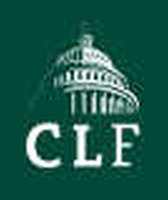Get PolitiFact in your inbox.

Happy Birthday to us: Two years and 230 ratings on the Truth-O-Meter
Someone will surely say this article rates a Pants-on-Fire.
So with all risks that come with writing about oneself, it's time to blow out the birthday candle for PolitiFact Ohio. We've rated the veracity of political statements -- and created heartburn for Ohio politicians -- since July 25, 2010.
Here's to the 56 True ratings over the last 12 months. Here's to the 32 claims that PolitiFact Ohio rated False on the fanciful Truth-O-Meter.
But we know what you're waiting for: Here's to the 19 Pants-on-Fire findings, the lowest of the low, reserved for the outrageous and ridiculous.
Ohio House Speaker William G. Batchelder holds the Ohio record so far for Pants-on-Fire, with three such ratings. This doesn't mean Batchelder, a public servant with a flair for storytelling, is a liar. It just means he's made more statements that were found to be ridiculously untrue, if not wonderfully colorful.
Take the tale of a Canadian provincial premier who came to Ohio to get medical care because of delays in Canada's health system. Batchelder heard about it through the grapevine, then threw it into his first speech as House speaker this year. It was a good yarn -- if only it were true.
A Batchelder spokesman declined to comment. But the speaker's lapse offers a lesson on how not to trip up.
One area where politicians get themselves into trouble is when they stray from their areas of expertise and instead start repeating talking points, we found. Those talking points are created to get a political reaction and often have a kernel of truth to them, but can often stretch the facts in order to sway opinion.
Rob Portman, the freshman U.S. senator from Ohio, is a good example. He's a former trade ambassador, and his claims about trade have been found to be True and Mostly True. It's when he veers into more partisan rhetoric about the economic stimulus bill and energy production that the Truth-O-Meter needle sometimes tips to the negative side.
Or take Dennis Kucinich, the congressman from Cleveland. Kucinich has expressed unorthodox views on UFOs, the Federal Reserve Bank, and war and peace over the years. Yet he has scored relatively well on the Truth-O-Meter -- five ratings of True in the last 12 months and only one of False, with several more in the middle. When he has spoken on the House of Representatives floor about the war in Afghanistan and emergency food assistance, he has used verifiable facts.
Maybe that's the beauty of the enterprise -- that facts can delight and surprise, even crushing preexisting notions. John Boehner, an Ohioan who happens to be the speaker of the U.S. House of Representatives, had what we considered the "most surprising truth" when he said last August that under the nation's new health care law, "If a landscaper wants to buy a new lawnmower, or a restaurant needs a new ice-maker, they have to report that to the feds."
It was true, part of a small business tax crackdown that was supposed to scare up new revenue. Outrage over the provision grew and Congress repealed it in April.
So what do politicians, their aides and political parties think of PolitiFact Ohio?
Few are comfortable talking about it publicly, although their opinions are known to PolitiFact reporters. Some dislike the amount of time they spend documenting their claims when reporters call. A view voiced from the White House to the Ohio Statehouse is that PolitiFact nit-picks, finding flaws in small details rather than looking for broader truths, or gives license for wiggle room if a claim is carefully couched.
Democratic U.S. Sen. Sherrod Brown would add a new rating: "True But Deceitful."
"That's where I would have the biggest quarrel with how you do this," says Brown, who nonetheless says he believes that PolitiFact "makes us a little more cautious about what we repeat that we've heard."
Partisan politicians, says Brown, who of course cites Republicans, "so often will say something about me or about progressives or about the president that in a narrow sense may be true, but it is really deceiving the public about the bigger picture. I think if you had a 'Narrowly True But Deceptive' rating, you could answer that."
PolitiFact editors hear the same complaint from Republicans. This speaks to what PolitiFact is, and what it is not.
PolitiFact is not a guide to the metaphysics of public policy. It doesn't presume to referee which party holds eternal truths. Its function is simple, actually.
Politicians make a lot of claims. PolitiFact examines those claims, one at a time, reviewing what is said, how it is said, and its context.
As for Brown's recommendation to deal with deceptive claims, it sounds a lot like our rating of Half True. The definition of 'Half True' is that the statement is partially accurate but it leaves out important details or takes things out of context.
In its inaugural year, PolitiFact Ohio examined 218 claims on the Truth-O-Meter. Ninety-two were from Democrats or allied interest groups, 116 were from Republicans and their allies, and 10 were from agencies, think tanks and others who made claims we thought were worth checking.
Why so many Republicans?
Because Republicans have dominated Ohio politics since the November election. They became a majority in the state's congressional election by picking up five seats in the House of Representatives, where Boehner, from West Chester, became speaker.
Ohio gained a Republican governor, John Kasich, a regular PolitiFact Ohio presence. Both of the state's legislative chambers have Republican majorities. Political leaders tend to speak up. And PolitiFact Ohio tends to listen, picking subjects though news coverage, a transcript service for news programs and congressional statements, and by reporters keeping their ears open.
PolitiFact has no Republican-Democrat quota.
But what of the results?
Over the last 12 months, Ohio Democrats and their allies have earned 28 ratings of True; 25 of Mostly True; 14 of Half True; 9 of Barely True; 10 of False, and 6 of Pants-On-Fire.
Ohio Republicans and their allies have earned 24 ratings of True; 15 of Mostly True; 27 of Half True; 17 of Barely True; 21 of False, and 12 of Pants on Fire.
About half of the Pants on Fire ratings were given during the 2010 election season, when rhetoric ran hot, veracity be damned. As for the False ratings, 38 percent of them came from claims -- nearly all attacks -- during the election.
Looking ahead, PolitiFact Ohio figures to be busy with a state ballot measure next fall to repeal Ohio's new collective bargaining law, and the possibility of another to render the federal Affordable Care Act unconstitutional. Then there's next year's elections.
For those with a sense of humor, this might even be fun.
Nothing illustrates that better than a recent go-round between PolitiFact Ohio and the Republican National Congressional Committee, or NRCC. The committee accused Democratic U.S. Rep Betty Sutton of Copley Township and fellow Democrats of conducting "a spending spree and now their credit card is maxed out." It was part of the national debt blame game, with Sutton's culpability an integral element.
PolitiFact Ohio rated it Barely True.
Undaunted, the NRCC sent out an audacious follow-up e-mail proclaiming that PolitiFact Ohio agreed with its attack -- because part of the rating contained the word "true." So PolitiFact Ohio addressed the new NRCC proclamation, rating it Pants on Fire.
Seemingly unfazed, NRCC spokesman Tory Mazzola sent out one more cheeky e-mail, claiming that PolitiFact had confirmed the original claim yet again.
You have got to be kidding!
Turns out he was. His final e-mail had gone to only one recipient -- PolitiFact Ohio -- as a joke.
Our Sources
PolitiFact Ohio, politicians and readers












































